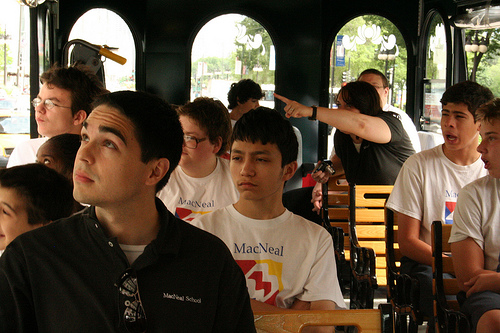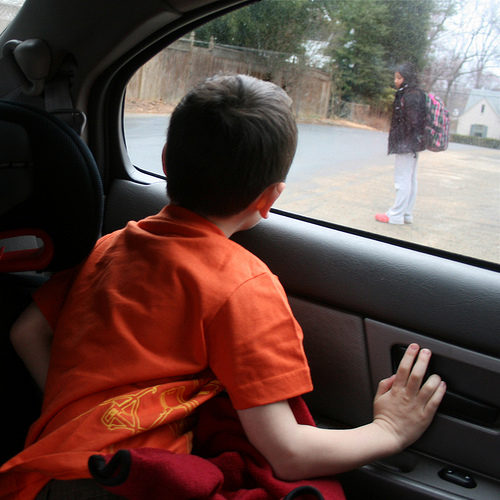Most schools couldn’t run without parents and grandparents who act as classroom helpers, dance chaperones, PTO officers, fund-raisers and field trip drivers. Volunteering is a great way to be involved in your children’s education, and to meet their classmates and their families. It can also expose you to liability. Does your insurance cover these activities?
Classroom Activities

- While you’re volunteering in the classroom, the school’s insurance policy protects them against liability if someone gets hurt, provided you’re engaged in a school activity.
- If you are sued individually, your homeowners or renter’s policy should pay to defend you against claims for bodily injury or property damage. Not every homeowners policy covers “Personal Injury” – such accusations as slander, libel, defamation of character or invasion of privacy. Make sure your policy has this coverage!
Outside the Classroom
Things are a little trickier here. Let’s say you’re a chaperone on a field trip to the county fair, and one of your students wanders away from the group and is hurt.

- The school’s insurance policy will protect them against liability on a school-sanctioned event. Most policies will also protect volunteers, but you never know how much coverage the school district bought, or even if the premium has been paid to keep the policy in place.
- Your homeowners liability coverage should again protect you if you’re sued for bodily injury or property damage (or personal injury if you took our advice above and bought that coverage). How much coverage do you need? We generally recommend a $500,000 liability limit, the most you can buy on most homeowners policies. You should also consider an umbrella liability policy to provide even broader asset protection.
What if you’re an officer in the PTO, or a fund-raiser? Some school policies will protect the PTO. Others do not. Before you join any non-profit board, you should find out whether your activities are covered. If not, your homeowners policy should protect you in the same way described above.
Two Big Holes
Your homeowners policy does not provide “errors and omissions” coverage (incorrect administration of the board) or “fiduciary” coverage (theft of money or property). All the more reason to make sure that the organization offers protection to you as a volunteer before you agree to serve.
Transporting Children

Most schools require proof of insurance before they’ll allow you to drive children to a school-sanctioned event. Their requirements may not be sufficient to protect you, though. It’s important to check on 3 coverages in your auto policy:
- Liability – Too many people have liability coverage with “split limits” instead of “combined single limits”. A common split limit is $100,000 per person/$300,000 per occurrence for Bodily Injury, and $100,000 for Property Damage. Most people think that means they have $300,000 of liability coverage if they’re at fault in an accident. Not really – unless 3 people are hurt, each with up to $100,000 of injuries. What they really have is $100,000 per person. By comparison, a $500,000 “combined single limit” policy has up to $500,000 to pay for Bodily Injury or Property Damage, no matter how it’s needed.
- Uninsured Motorist – Although Maine mandates that drivers have liability insurance, many still don’t. And, the State minimum limits are a scrawny $50,000 per person/$100,000 per accident. If someone who’s un- or under-insured hits you, your UM coverage protects you and people riding with you up to the limit you choose. Choose wisely!
- Medical Payments – You don’t have to be in an accident for someone to be hurt in or around your car. It doesn’t even have to be your fault. A kid could slam someone’s finger in a door, or close a hatchback on someone’s head. Kids have even been known to engage in horseplay in the car – hard to imagine, isn’t it? Anyway, the kid’s family’s medical insurance should pay for those injuries, right? Yes – unless they’re one of the 45 million uninsured Americans. Then, they might sue you for their injuries. So, make sure you choose appropriate medical payments limits if you’re transporting other peoples’ kids – whether for school or not!

